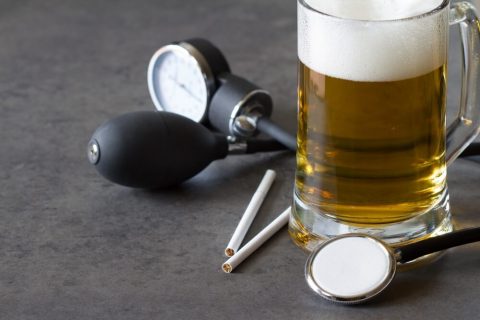How to Prevent Relapses from Ruining Your Journey to Recovery

Preventing relapses is a crucial aspect of maintaining a successful journey to recovery. In this blog, we explore the dynamics of relapse, understanding its triggers, and providing practical strategies and insights on how individuals can fortify their recovery, navigate challenges, and build resilience to prevent relapses from derailing their progress.
Understanding the Nature of Relapse: Relapse is a common challenge in the recovery journey, but it’s essential to understand that it doesn’t signify failure. Instead, it highlights areas that require additional attention and support. Recognizing the nature of relapse as a potential part of the process allows individuals to approach recovery with realistic expectations.
Identifying Triggers and High-Risk Situations: Preventing relapses begins with identifying triggers and high-risk situations. Triggers can be emotional, environmental, or social factors that increase the likelihood of succumbing to old habits. By understanding these triggers, individuals can develop strategies to navigate challenging situations without resorting to substance use.
Building a Strong Support System: A robust support system is instrumental in preventing relapses. Friends, family, sponsors, and peers in recovery form a network of support that individuals can turn to during challenging times. Open communication, shared experiences, and mutual encouragement contribute to the strength of the support system.
Regular Attendance of Support Meetings: Regular attendance of support meetings, such as Alcoholics Anonymous (AA) or Narcotics Anonymous (NA), provides individuals with ongoing guidance and reinforcement. These meetings offer a platform to share experiences, receive advice, and stay connected to the principles of recovery. Consistent participation helps maintain focus on the journey to sobriety.
Continued Therapy and Counseling: Ongoing therapy and counseling are essential components of relapse prevention. Individual counseling sessions provide a space for addressing personal challenges, exploring coping mechanisms, and maintaining mental and emotional well-being. Engaging with therapy reinforces the skills needed to navigate potential relapse triggers.
Healthy Lifestyle Choices: Adopting a healthy lifestyle is a proactive measure against relapse. Regular exercise, a balanced diet, sufficient sleep, and mindfulness practices contribute to overall well-being. A healthy lifestyle enhances physical and mental resilience, making individuals more equipped to handle stressors without turning to substances.
Developing Coping Mechanisms: Relapse prevention involves developing effective coping mechanisms to navigate stress, anxiety, and other triggers. Coping strategies may include deep breathing exercises, meditation, journaling, and engaging in hobbies. By building a toolkit of healthy coping mechanisms, individuals can respond to challenges without resorting to substance use.
Setting Realistic Goals: Setting realistic and achievable goals is crucial for relapse prevention. Unrealistic expectations can lead to frustration and disappointment, increasing the risk of relapse. By establishing manageable goals, individuals can experience a sense of accomplishment and build confidence in their ability to navigate the challenges of recovery.
Regular Self-Assessment and Reflection:Regular self-assessment and reflection are vital components of relapse prevention. Taking time to evaluate progress, identify areas for improvement, and celebrate successes provides individuals with a continuous feedback loop. Self-awareness contributes to a proactive and empowered approach to maintaining recovery.
Preventing relapses requires a multifaceted approach that includes understanding the nature of relapse, identifying triggers, building a strong support system, attending support meetings, continued therapy, adopting a healthy lifestyle, developing coping mechanisms, setting realistic goals, and regular self-assessment. By embracing these strategies, individuals can fortify their recovery journey, minimize the risk of relapse, and build a foundation for sustained sobriety.





